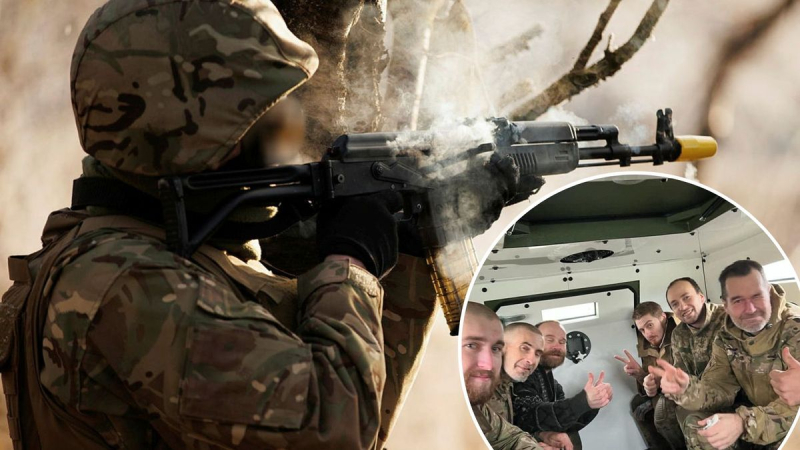
Publication author
Ekaterina Rashevskaya
Speaking of responsibility for international crimes committed against Ukrainians, one rarely remembers those who fight for freedom at the cost of their own lives. Read more in the exclusive blog for Channel 24 website.
Since the beginning of the full-scale invasion of the Armed Forces of Ukraine, at least 700 thousand people, ordinary citizens, have been mobilized. Among them are our dads, men, brothers and friends. Until February 2022, they are ordinary civilians who were drawn into the conflict by Russian aggression.
It makes no difference to the law whether you defend or attack.
The right to life is not absolute. In some cases, killing is “permitted”. Among them is the armed conflict. According to international humanitarian law (IHL), a combatant, that is, a person who actively participates in hostilities with weapons in his hands, is a legitimate military target.
This means that she can be killed by an opposing combatant without any punishment. For IHL, it does not matter who started the war and under what circumstances civilians became soldiers. Therefore, Ukrainians and Russians with weapons are in the same legal framework, despite the fact that some defend themselves and others attack.
War is not without loss
At least 13,000 Ukrainian defenders and defenders died after the start of a full-scale invasion. The same number – during 2014-2021. Joining the resistance to Russian aggression and fighting for the very opportunity to realize the rights and freedoms for themselves and their families, they realized the risk of losing their own lives.
However, Ukrainians are not cannon fodder. Behind each unit of statistics is the story of the deceased hero or heroine and the traumatic experience of their loved ones. It is unlikely that the latter will be able to feel justice and the rule of law if they hear that their relatives are legitimate targets. But how to punish Russia and its agents for what is “permitted” in IHL?
How to hold the Russians accountable for the murder of our soldiers
Trying to convince the still apathetic part of the international community of the need to create a separate international mechanism for Putin, Lukashenko and other criminals, Ukrainians resort to a number of arguments. In some places there are those who make opponents more sensitive, but they have a rather distant position to the tribunal itself. Yes, a special mechanism is allegedly needed “to protect children,” “to hold accountable for war crimes,” “to try Skabeeva and Simonyan.”
In fact, these goals can be achieved through the effective use of existing institutions at the national and international level, in particular the International Criminal Court (ICC).
However, there is no body where the Russians could be held accountable for the murder of Ukrainian fighters. In this case, it is necessary to punish aggression as such. As an act that necessitated general mobilization in Ukraine. As a crime, the significance of which was rightly emphasized, even in the decision of the Nuremberg Tribunal over the Nazis. After all, it is aggression that is actually “possible” in the commission of other violations of international law, some of which reach the threshold of genocide, war crimes and crimes against humanity.
While the Special Aggression Tribunal will not be able to criminalize the killing of a state combatant exercising the right to self-defence, its activities will have significant symbolic value and will ensure the right to truth and the request for justice to mothers, wives, husbands and children who have lost a family member due to Russian imperialist ambitions and a ten-year policy of appeasement of the aggressor by the international community.
Role of the International Criminal Court
While the killing of a combatant is not generally against IHL, other documented acts by Russia against Ukrainian defenders and defenders bear the hallmarks of war crimes. Their range covers:
- torture and inhuman treatment;
- deliberate deprivation of the right to a fair trial;
- the killing of persons who have ceased to participate in hostilities;
- the use of disproportionate and inhumane weapons;
- sexual abuse.
It is well known in what condition Ukrainian prisoners of war return from Russian camps: tired of hunger, raped, humiliated, shorn, but unsubdued. The ISS can hold Russians accountable for war crimes, regardless of position, privileges and immunities.
Russian agents who are capable of waging war in Ukraine, mainly against the civilian population, must answer for the atrocities committed also against Ukrainian fighters and fighters.
The right of force
In circumstances where Russia devalues international law on a daily basis, in particular on the battlefield, individual representatives of the international community (including public figures and human rights activists) continue to wear rose-colored glasses and advocate any arguments other than arms supplies for Russia.
From them you can hear about the “harmful consequences” of expelling Russia from international organizations and the “negative impact” of sanctions on good Russians. Sometimes they issue reports on how Ukrainians “violate” IHL, expecting Russia's wrongful aggression to be countered by following all the rules.
In an ideal world, this should indeed be the case. However, in such a world, aggression is prohibited, and international law and organizations operate effectively, including in matters of guaranteeing peace and security. In an ideal world, civilians wear suits, not ammunition, the military is called upon to defend, not attack. But where we are today, Ukrainians need weapons. For, in order to return force to law, it is necessary to defeat the one who wants to impose the law of force.
Dad, not a legitimate military target. Ukrainian or Ukrainian, not cannon fodder. It is also necessary to punish Russia's aggression in order to prevent a repetition of general mobilization to counter a new attack in the future. To avoid forever another war.

